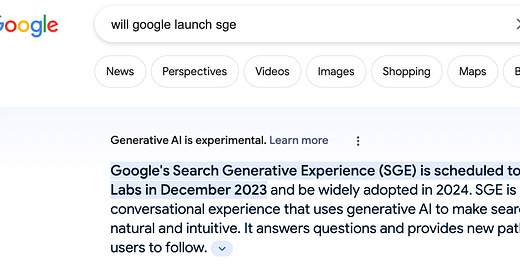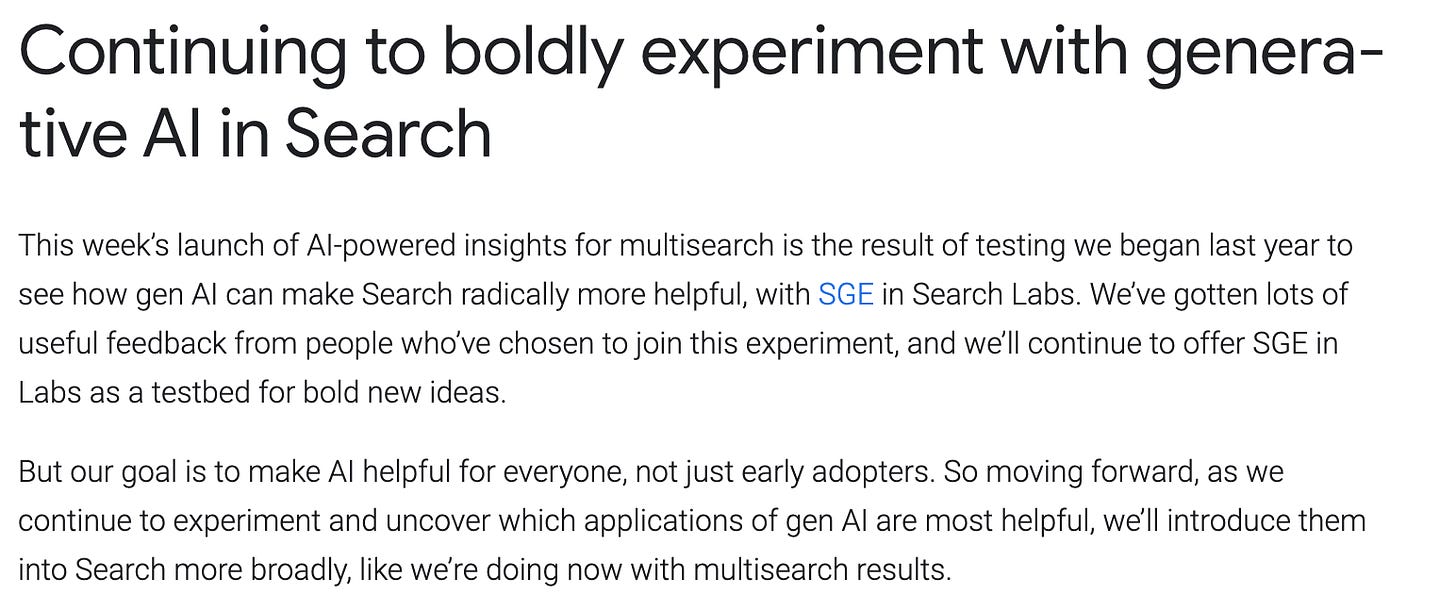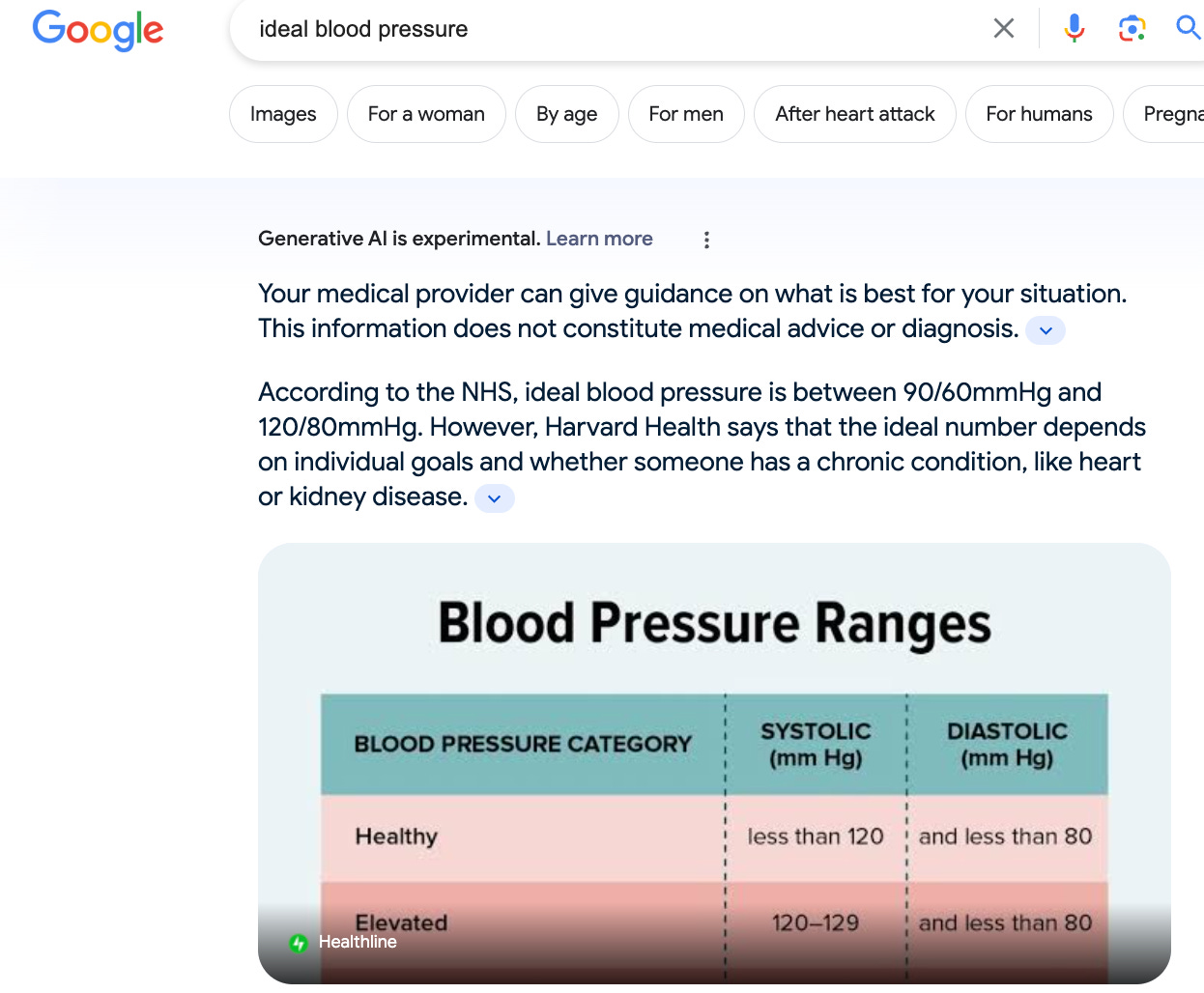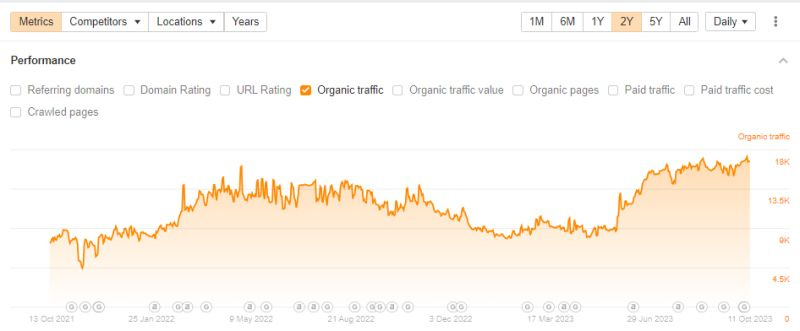Is Google afraid to launch SGE?
This week’s newsletter is sponsored by the Digital PR agency Search Intelligence and North Star Inbound. See their case studies linked in the newsletter.
Also, please check out my newly launched profile on Intro https://intro.co/elischwartz where I am now available for meetings.
When Google launched the first opt-in beta of their generative experience, it was assumed that they would learn from it and very quickly roll it out to the world. They had an emergency on their hands with the rise of ChatGPT, and a fear of losing market share pushed them to create a solid alternative.
It has now been nearly nine months since that product launched, and Google issued vague hints that it isn’t yet being rolled out to the world in an update they shared - excerpt below.
SEO is still at risk
Does this mean SEO is in the clear? Absolutely not! Numerous studies have already been conducted about how impactful SGE is to search results in its current state, which means that when, not if, Google launches it, it will cause much pain to the SEO industry. (I am not linking them here, but reply to this email if you want more details.)
[Sponsored]
Digital PR is not the cure-all solution to all your SEO problems.
But if combined with a killer SEO strategy, it can be the extra fuel you need to boost your rankings to the next level.
This client in the beauty space started running PR campaigns with us since May last year.
We secured over 100 links in massive publications, such as The Sun, Grazia Magazine, Popsugar, Daily Mail, and lots more.
These are the three types of PR activities our team ran, throughout the year:
In my search, I see SGE on over 80% of my queries, and many times, I appreciate the clarity that comes from these answers, although they may not always be accurate.
Don’t let your guard down; build for the mid-funnel.
As long as Google keeps SGE in its back pocket, it holds a nuclear option that can be deployed anytime without any warning. They have already revealed the product, launched a beta, and declared it not dead; the next announcement is that it has been released.
I believe the best course of action is still to continue building SEO strategies that AI can't disrupt. Generative AI will disrupt content that is high in the funnel or informational; however, content that is deeper in the buyer’s journey will likely not be as disrupted.
Medical content will be very impacted, while e-commerce might be less so.
In this scenario, websites can expect lower traffic, but conversions should remain the same. If you sell a physical widget, the demand for that widget doesn’t change just because the funnel is different.
Google developed its generative AI product in search because they were afraid to miss their moment.
SGE was always a risky bet for them because it upends two decades of search built around sending traffic to ads or other sites for free. Adding in generative responses adds a third possibility that could upset the delicate balance of their search marketplace.
If someone is on the wrong side of this bet, this is a career-ending risk. Google has gone through multiple rounds of layoffs in the last year, which could have made their teams more risk-averse.
Nevertheless, the primary reasons holding Google back from a full launch are not insurmountable, and market conditions could quickly make them launch widely even without solving these challenges.
Challenges:
🚩 The latency and delay in showing results are challenges. If you are currently in the SGE beta, you know that it takes some time to load a result. Many users might not appreciate seeing results take time to load, especially from a search engine that prides itself on speed.
✅ Google can solve this by batching generative responses just like they do searches. When you do a query on Google, you aren’t querying the database in real-time, which is why SEO teams can measure “rankings” on a stable basis.
🚩 SGE is expensive, and it will get significantly more expensive in a total release. It’s no secret how much AI computations cost; just look at Nvidia’s stock. It’s currently costing Google $billions to manage its beta cohort, and releasing it to its whole user base will get infinitely more costly.
✅ Much of the cost is because each query is run in real-time. Batching, just like they do on traditional search, solves some of the cost, as a generative response will be pulled out of the database rather than written in real-time.
🚩 Google generates more than $200b per year from its ads business, and anything that would upset that business is bound to be delicate. Changing the layout of the search page, which will either remove ads completely or change their click-through rates, is a big deal. Currently, Google monetizes with clicks, and generative responses are designed to avoid clicks.
✅ Google has yet to solve the monetization question, but they have not given up. If any company can figure out how to monetize this channel, I would bet on Google.
🚩 There are general legal concerns around AI content, which will open up Google to liability. For example, is generative AI plagiarism? Does Google have to share revenue with its content sources? Is Google a publisher of content and therefore responsible for the content impact?
✅ There is a current case against OpenAI for plagiarism, which will clarify some level of exposure, but again, this is an area that legal scholars continue exploring. The open legal questions will get less murky as time goes on.
🚩 One area where Google likely can’t get around its legal issues is the European continent, where EU regulatory bodies have generally taken a more hostile approach to Google. While Google can find some level of protection in the US and other major countries, the EU will always be a challenge.
✅ There's no obvious fix to the big target painted on Google in Europe, but if the business case is compelling enough, Google could likely leave Europeans using a legacy product while the rest of the world uses generative AI in search.
When will SGE launch
If I had to make a crystal ball prediction, I think some version of generative AI in search will be in production (not beta) before the end of Q1. In my opinion, there is a significant aspect to generative AI responses that are better for users. It is wishful thinking by Google and marketers that the generative AI genie will get put back in the bottle.
Building SEO strategies that are structured around user funnels always makes the most sense, but up until this point, there were content shortcuts that could not be ignored.
Those content shortcuts are nearly obsolete; now is the time to pivot.
[Sponsored]
If your site is not performing and there are clear opportunities to apply best practices, stop wasting time looking at other sites and take an honest look in the mirror.
We have seen this repeatedly and have never seen a site that's not benefited from consistently applying best practices.
A recent example after losing traffic through 2022 algo updates and HCU.
Now:
.
Click here to find out exactly what we did to get this result. Join our newsletter here. Get to know our work here







